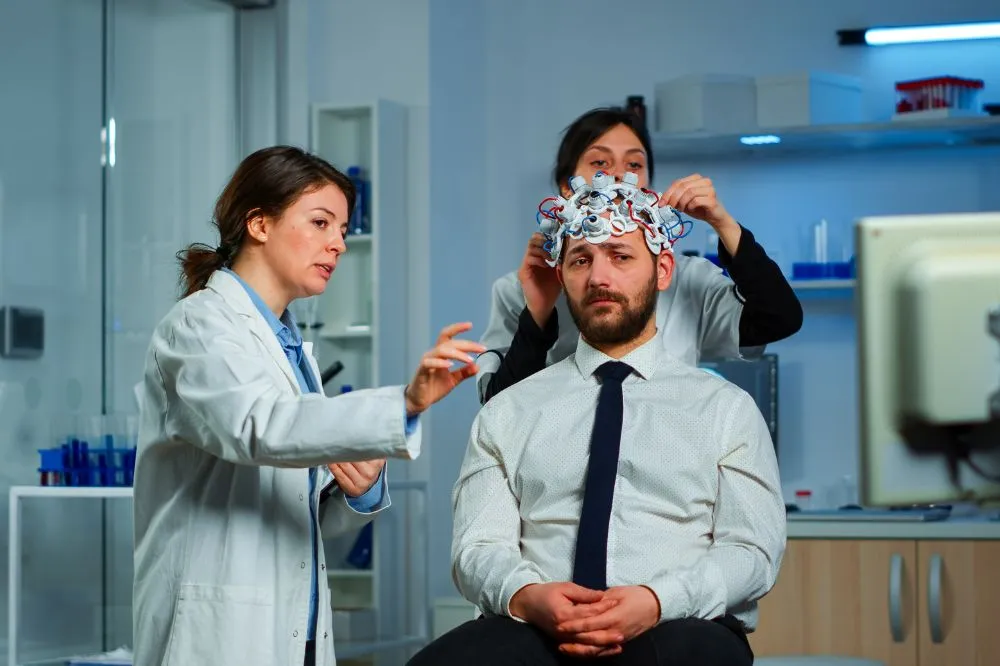Summary: Alcohol abuse disorder is a significant problem among adults. It is among the preventable causes of ill-health. Nonetheless, doctors who treat alcohol abuse disorder know that treating the condition is not easy. There are high relapse rates among the patients. In addition, it appears that binge drinking at a young age causes epigenetic changes, making people prone to anxiety and alcohol abuse disorders. Thus, experts think that gene therapy, Opioid addiction treatment and Telehealth treatment could be an effective way to treat the condition.
Binge drinking is a significant problem in the US. Studies suggest that about one-sixth of all adults in the US engage in binge drinking. These people do not essentially have alcohol abuse disorder, and they are not living with alcoholism. However, they drink excessively from time to time.
Binge drinking is described as when someone consumes 4-5 or more drinks on occasion. Binge drinking is associated with significant harm. For example, it is the cause of motor vehicle accidents, violence, memory and learning problems, and more.
New studies suggest that some people are prone to binge drinking. They are often well-educated individuals with good incomes. However, they are used to consuming alcohol excessively now and then. Thus, they are exposing themselves to undue risk. Binge drinking is quite different from alcoholism, as binge drinkers are sober most of the time.
Researchers have long tried to understand why some individuals continue binge drinking. It seems that binge drinking at a young age causes changes in gene expression. Thus, a person becomes hard-wired to drink excessively. It also means that managing binge drinking by medications is quite challenging.
Researchers have identified genes associated with binge drinking and tools to modify them
Of course, genes do not change readily. Thus, modern studies show that high alcohol consumption causes epigenetic changes. In epigenetic changes, genes remain intact or unchanged. However, gene expression changes due to lifestyle choices. Once gene expression has changed, it continues to cause trouble for the rest of your life.
There could be many ways of overcoming epigenetic changes. For example, unlike genetic changes, these epigenetic changes might be overcome through lifestyle modification. However, some researchers think that the faster way could be by using gene therapy.
For gene therapy, two things are required. First, science needs to identify the genes that were altered due to binge drinking, and then they need to find tools for gene editing. It appears that science has identified both of them, at least in animal studies.
In a study done on mice models, researchers fed them with excessive alcohol for a long. And they found that this led to specific epigenetic changes. For example, they saw that binge drinking especially led to the changes in the so-called Arc gene. The changes in this particular gene expression occurred emotion and memory center. These changes predispose individuals to anxiety and alcohol use disorder later in life.
It means that editing this particular gene may help reduce anxiety and the risk of alcohol use disorder. The problem with epigenetic changes is that they continue to persist for the rest of life. These changes are quite challenging to reverse through lifestyle modification. However, one may alter these changes via gene editing.
In the study, researchers used CRISPR-dCas9 for gene manipulation. This tool is the gold standard for gene therapy these days. They found the tool quite effective for reducing anxiety and other changes, thus reducing the risk of alcohol abuse disorder.
Although these are still early days, researchers think it is just a matter of time before gene therapy becomes widely available. These findings can definitely contribute to the treatment of alcohol abuse disorder in adults. In addition, it can help provide a permanent cure for addiction.






